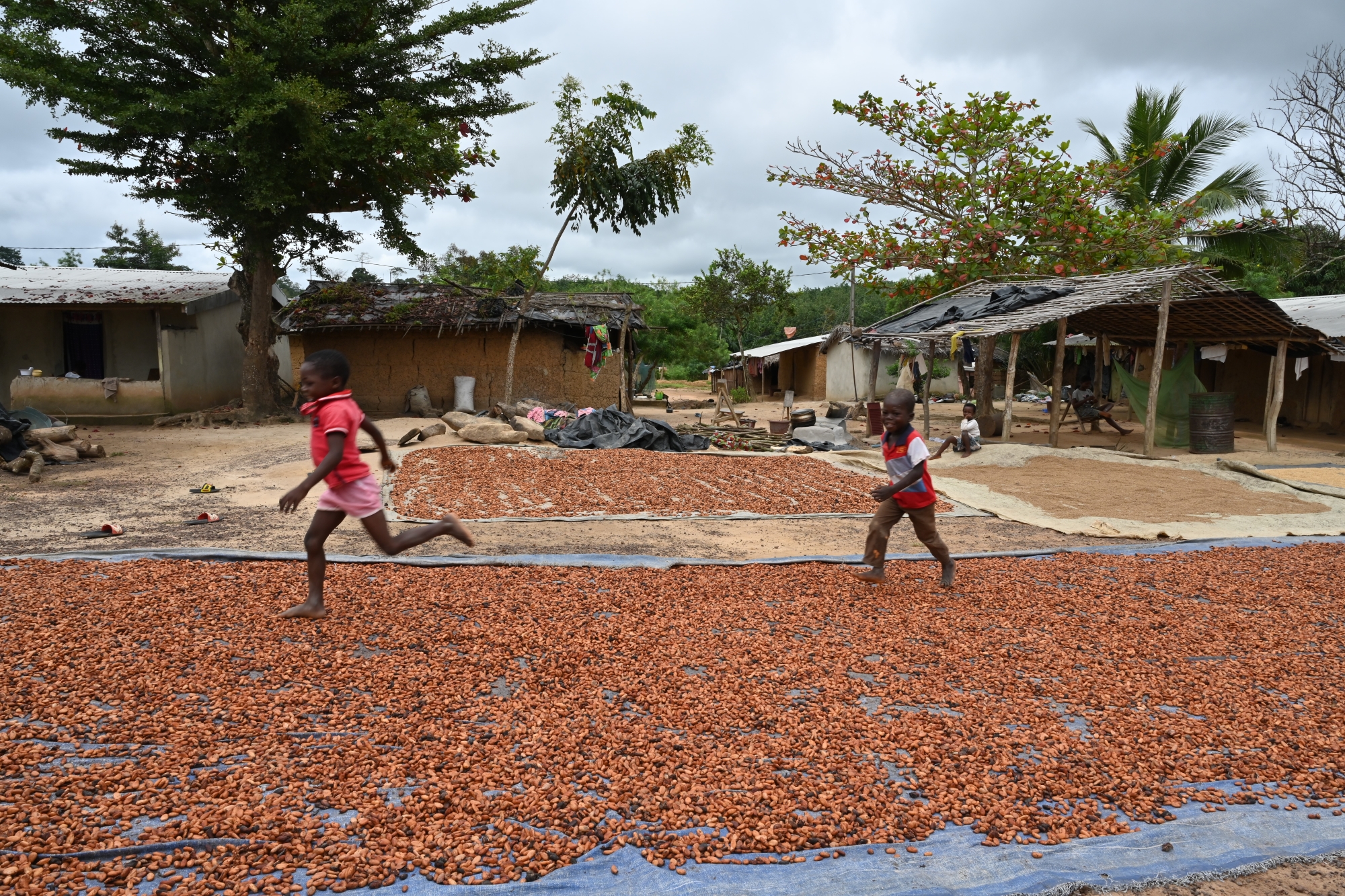Strategies for change
To work towards a social norm and sustainable solutions against all forms of child labor among all stakeholders – communities, governments and businesses – WNCB implements a combined approach of strategies: an area-based approach that goes hand in hand with a supply chain approach.
Area-based approach
In the area-based approach, WNCB targets the underlying root causes and conditions that lead to child labour in a specific area, often at the community or village level. In Côte d’Ivoire we work together with local social service providers, both formal and informal, to strengthen local child protection systems – from the education ministry and health centres to community centres and the police force.
Community mobilisation
Awareness raising activities are organised to change practices and attitudes towards child labour in most communities. Children are often involved in working on family farms or in at homes. Community mobilisation was the cornerstone of the WNCB programme. Social workers carried it out in all intervention areas. It goes beyond convincing and involving parents and families. For children to go to school and stay in school, all people and stakeholders in a community need to believe and support the idea that all children must go to school. To reach the whole community, mobilisers attend meetings of groups in the community, such as Child Protection Committees, village committees, and sometimes early warning committees. These committees are also sensitised communities about legal provisions and measures to combat child labour.
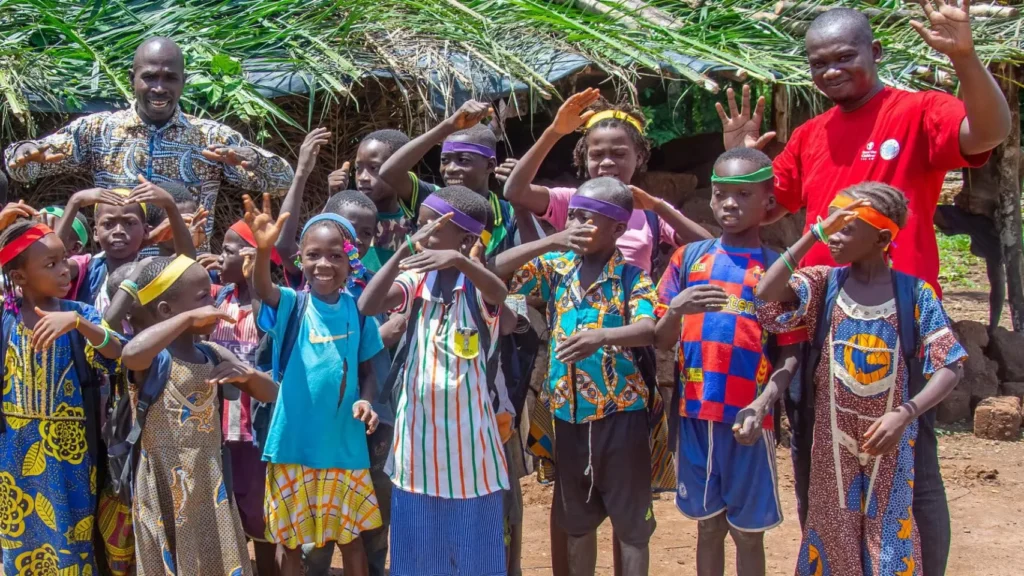
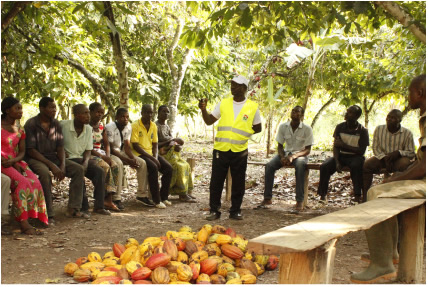
Loans, savings and alternative income generating activities
The economic vulnerability of households and the weak implementation of social protection policies are among the factors perpetuating child labour. That’s why, aligning with the approaches and the standards of the national productive social safety nets programme, the WNCB strategies focused on strengthening the economic resilience of vulnerable households where children are exposed to child labour through Income-Generating Activities (IGAs), Village Savings and Loan Associations (VSLAs), cash transfers, and support for improving the income of farmers. To be effective these strategies were combined with initiatives to facilitate access to essential social services and activities that promote changes in social norms, one of the root causes of child labour.
In the villages WNCB works in, we establish Village Saving and Loan Associations (VSLAs) to enable community members to contribute savings to a common fund. These savings are collectively managed by the village and used to provide affordable loans to community members who need financial assistance to grow their business, buy materials or expand into new income generating activities. Additionally, the VSLAs bring communities together to collectively determine the priorities and needs of their locality, encouraging exchange and neighbourliness – strengthening bonds and improving community cohesion.
All of this helps to provide parents with the means to provide their children with sufficient food, to pay workers to help them with the harvest, and to send their children to school – all material contributions to the reduction of conditions leading to child labour.
Strengthening social services to enforce children’s rights
The village committees of the System for Monitoring and Monitoring Child Labour in Côte d’Ivoire (SOSTECI) are the primary structures responsible for identifying and referring children in child labour or at risk of child labour. Community structures, including SOSTECI committees, have acted as intermediaries for the social workers to whom they referred all identified cases for assistance. To facilitate prevention actions and case management, the WNCB program strengthened the capacities of social workers and provided flexible financial resources to social centres. WNCB works together closely with local partner SYNADEEPCI to train social workers, labour inspectors and law enforcement professionals on the prevention and case management of child victims of labour. By helping to raise awareness of children’s rights, as well as how to recognize and assist child labourers, these social service providers are better able to respond to and mitigate instances of child labour. These resources facilitate the care of children but also the establishment of coordination platforms that bring together all actors from social services, justice, health, and NGOs.
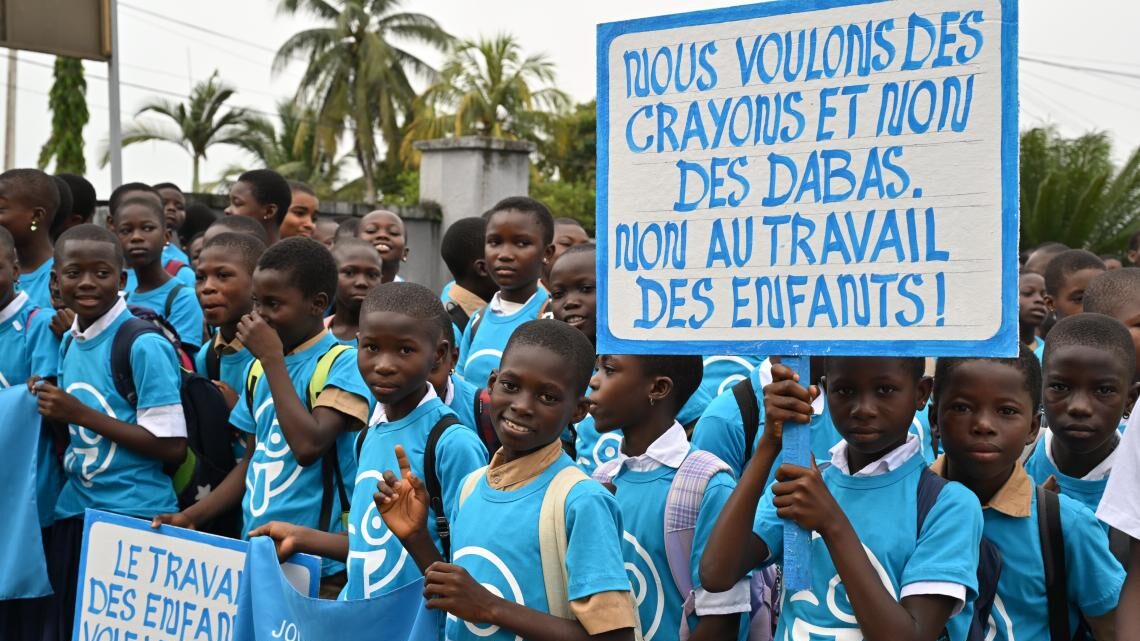
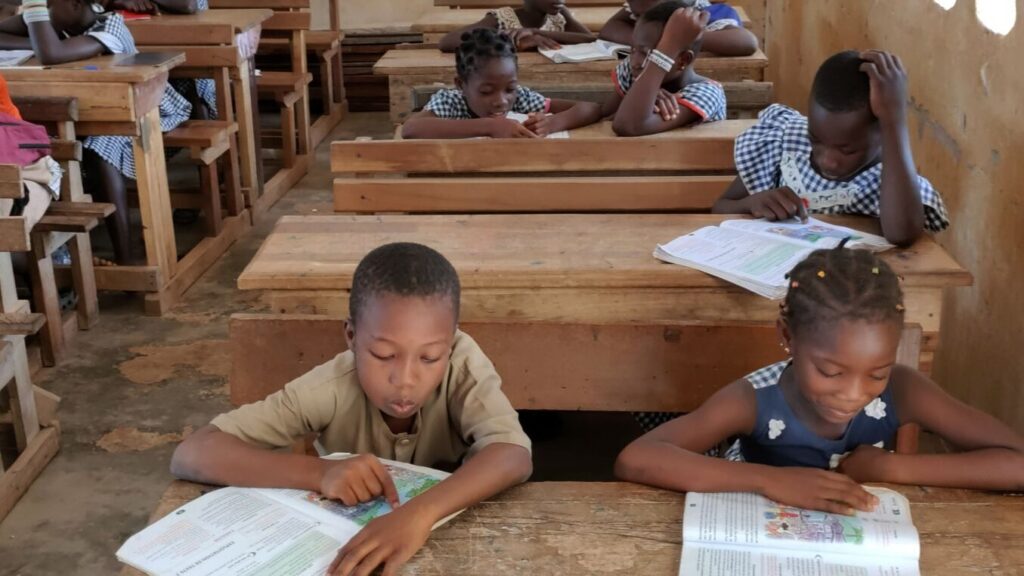
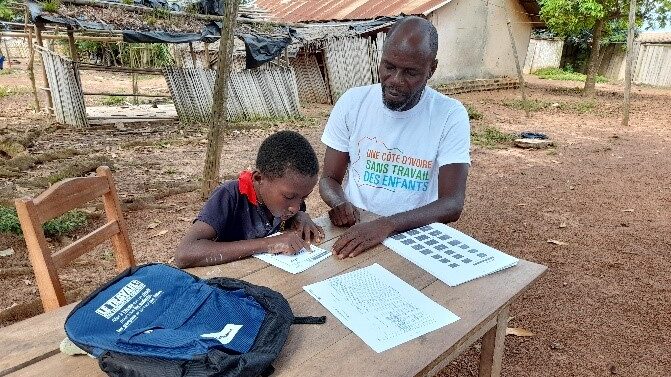
Supply chain approach
In the supply chain approach, we hold companies accountable for performing due diligence (in line with the international guidelines for responsible business conduct) throughout the cocoa supply chain. This includes cooperatives, wholesalers, purchasers, and the authorities that oversee them.
Without addressing the other side of the equation – the role of businesses in the supply chain – it is a struggle to ensure that the improved conditions at community level take hold. That’s why WNCB works together closely with actors in the domestic cocoa value chain to ensure that businesses also meet their responsibilities to protect children and prevent dangerous working conditions.
Understanding of CRBP
UNICEF and Save the Children work together with a number of cocoa cooperatives across the Nawa to ensure that their members understand, adopt and advocate for labour rights – including the rights of children. In these interventions, the WNCB partners focus on the Children’s Rights and Business Principles (CRBP), which aim to enable positive change in sectors that are affected by child labour. The Principles help to address the specific vulnerabilities of children and young people in these sectors.
WNCB also works together closely with the Conseil du Café-Cacao, the national council for cocoa and coffee production. The council, set up by the state as a public-private partnership, is the umbrella organization for all cocoa producers across the country. The Conseil conducts the certification and inspection of producers, cooperatives and wholesalers – it is here where WNCB has managed to make a difference as the agent in the production areas, linking the Conseil with the producers and cooperatives at the village level.
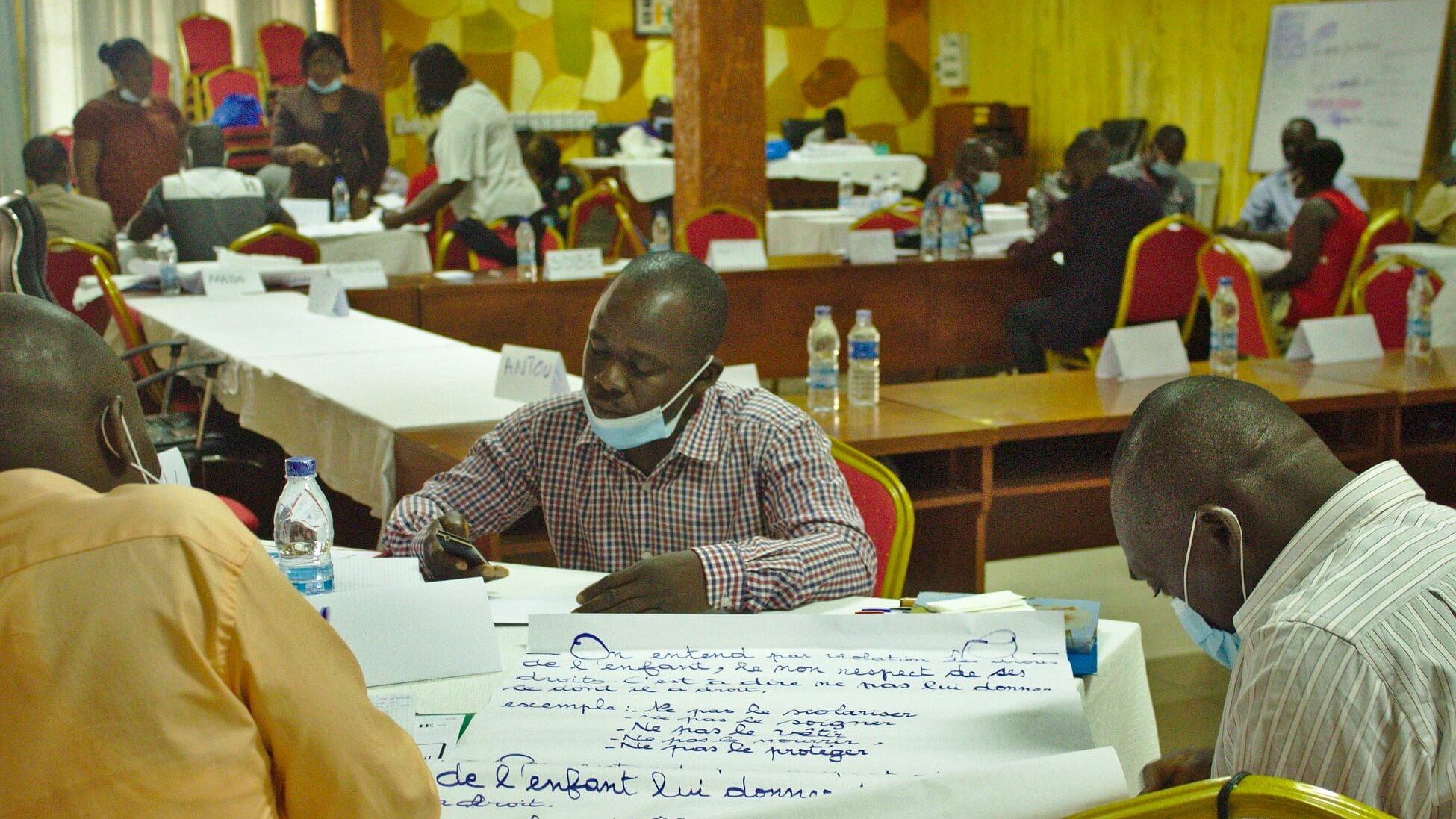
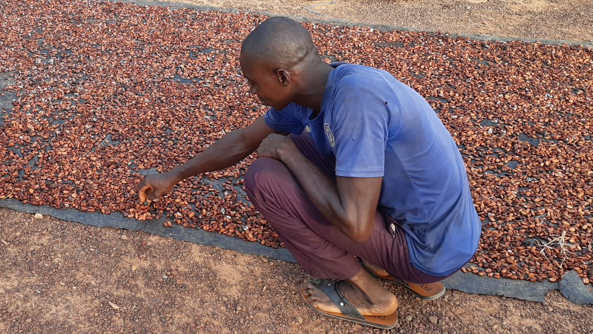
Additionally, WNCB works together with the Conseil to better incorporate CRBP in the Conseil’s certification and inspection processes, increasing the sensitivity to child labour and its causal factors. Through this collaboration, WNCB and the Conseil have been able to strengthen local child-protection systems and drive better respect for children’s rights among businesses in the value chain.
Self-assessment tool for cocoa cooperatives
The WNCB partners in Côte d’Ivoire have pioneered an assessment tool for cocoa cooperatives to self-examine their production chain. The tool helps cooperatives identify processes and procedures which exacerbate or mitigate child labour. By introducing this tool, WNCB partners and cooperatives identify a clear basis upon which they can proceed to design and implement a comprehensive plan of action to reduce the worst forms of child labour in their production chains.

